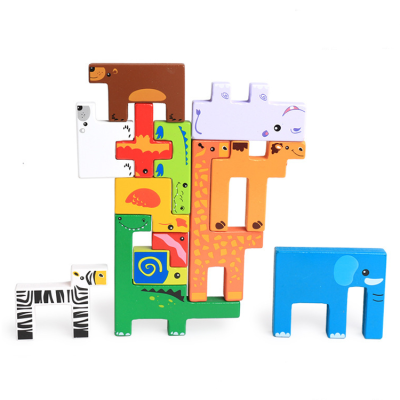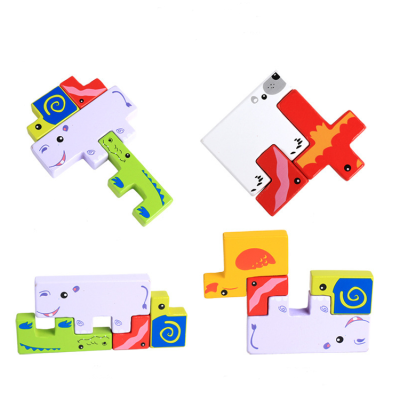Jigsaw puzzles are a very suitable game for babies. Playing jigsaw puzzles is very helpful for cultivating babies’ thinking ability. It can inspire wisdom and help babies develop the ability to solve things. It is very important for babies’ fine movements, hand-eye coordination, and logical concepts etc. are good, so some people compare jigsaw puzzles to vitamins for the brain.
To sum up, jigsaw puzzles have 8 major effects on the baby’s intelligent development:
1. Understand the relationship between “part” and “all”
Puzzles can teach your baby that many “parts” can make up a “whole”, and that “a whole” is made up of “many parts”.
2. Cultivate the concept of plane combination
Building blocks are three-dimensional combinations, while jigsaw puzzles are a concept of two-dimensional combination, which can allow babies to learn to spell out an object, a logical thing, in a limited 2D range.
3. Learn the meaning of order, order and logic
When many babies first come into contact with a multi-piece puzzle, they naturally know to start from the edge, and they can learn the meaning of order, order and logic. Babies learn classification from observation and judgment. Spell out the correct answer.
4. Improve operation and hand-eye coordination
The puzzle requires the baby’s patient operation and hand-eye coordination. As long as it is not coordinated, the color blocks cannot be placed in the correct position. Babies who don’t know how to fight at the beginning will naturally get it as long as they practice a few more times.
5. Cultivate observation, cultivate patience and focus
When first learning jigsaw puzzles, they usually start from patterns in daily life, so babies need to be familiar with the things around them in order to spell out the correct figures logically. In addition, playing puzzles can also cultivate your baby’s patience and concentration, allowing him to do one thing for a longer time.
6. Learn methods and strategies to solve problems
Playing jigsaw puzzles can learn the ability of reasoning and thinking, because the baby will try different options and decide to put down the right one, that is, through the process of assumption, judgment and selection, learn to use logic to solve problems.
7. Improve frustration tolerance and endurance
In the process of playing the puzzle, the baby will inevitably have misspellings. At this time, he will feel frustrated and don’t want to play anymore, but the adults can help the baby to tide over the difficulties, and the baby can get the endurance and anti-frustration ability from it. exercise.
8. Gain affirmation from chaos, destruction and reconstruction, and build self-confidence
When the baby completes the puzzle, he will have a great sense of achievement. This is an important element to improve the baby’s interest, and it is also a source of self-confidence for him to complete the puzzle independently in the future.








